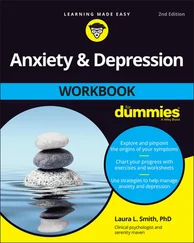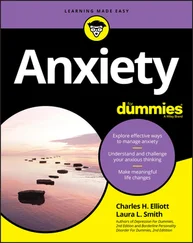Becoming a Sports Psychology-Savvy Coach
Coaches are constantly looking for that extra edge that will put them over the top in the ultracompetitive sports world. With that in mind, they frequently turn to sports psychology to learn better ways to understand their players, motivate their teams, and get more from the talent they have at their disposal.
Every day, coaches see athletes with incredible talent who can perform in practice, but who can’t carry that performance into competition. They know and understand that the mindset of their athletes is often what determines their success.
If you’re a coach, you’ll find plenty of advice throughout this book that you can use to help your athletes be their best. But we devote Chapters 18and 19in particular to you. There, you find strategies for helping your athletes improve their focus and perform under pressure, as well as mental drills you can utilize with your team to enhance and improve their mental development alongside their physical development.
 Don’t limit yourself to Chapters 18and 19if you’re a coach. The advice we give to athletes throughout this book is information you can share with your players individually or as a team to help them reach their potential.
Don’t limit yourself to Chapters 18and 19if you’re a coach. The advice we give to athletes throughout this book is information you can share with your players individually or as a team to help them reach their potential.
Chapter 2
Starting with the End in Mind: Know Your Ideal Athlete Mindset
IN THIS CHAPTER
 Determining your ideal mindset
Determining your ideal mindset
 Using journaling to hone your mindset
Using journaling to hone your mindset
 Assessing and improving your mindset
Assessing and improving your mindset
 Getting into the zone
Getting into the zone
Knowing your ideal mental state is a critical step in building your mind for consistent high-level performance. Most people habitually criticize themselves for even the smallest of mistakes. It becomes a bad habit that they don’t know how to break. When asking athletes, performers, and everyday people about their past negative experiences and mistakes, they can usually quickly recall a long list of them. These are the experiences and incidents that stand out in our brains. Our “default” mental state, unfortunately, is usually negative. It is an almost automatic response. As a culture, we are trained to focus on the negatives in our everyday lives. There is an evolutionary and biological reason for this fact as well (i.e., fear kept people alive thousands of years ago — because without focusing on the possibility of danger around them, they could have easily been attacked by a hungry animal).
Think about it for yourself. Do you focus on the positive things you are doing in terms of your performance? Or do you focus on the negative? What are your thoughts about this response from one of our professional athletes, who had just made the World Cup Soccer Team:
“I cannot believe I had such an awful practice today. Why did they even keep me on the national team?”
He did not even take a few seconds to celebrate his accomplishment of making the World Cup Soccer Team for his nation! Clearly, the battle to stay positive in our brains is a very real one.
 Here’s another example from a high school softball player we were working with. She had gone 1 for 4 at the plate, no errors in the field, and pitched three solid innings that game. She did happen to pitch at the time when a tying run scored from the opposing team, however. Her team went on to lose, but she spent almost a week beating herself up for that one pitch (and the pitch was a good one — the hitter was very good). Her inner critic took over for days! She took the loss personally and did not consider that there were three fielding errors by her teammates, or that her team’s batting average at the plate that game was about .200, and the opposing team was highly ranked nationwide.
Here’s another example from a high school softball player we were working with. She had gone 1 for 4 at the plate, no errors in the field, and pitched three solid innings that game. She did happen to pitch at the time when a tying run scored from the opposing team, however. Her team went on to lose, but she spent almost a week beating herself up for that one pitch (and the pitch was a good one — the hitter was very good). Her inner critic took over for days! She took the loss personally and did not consider that there were three fielding errors by her teammates, or that her team’s batting average at the plate that game was about .200, and the opposing team was highly ranked nationwide.
The point we are making here is simply that neither of these athletes took the time to think about, absorb, and celebrate the positive aspects of their performance. This is where having an ideal mindset can help, however. If you do not work on your ideal mindset, you cannot practice it, refine it, or master it. Thus, if you infrequently pay attention to when you perform well and frequently obsess when you do not (usually due to a mistake or two), your default negative mindset will continue, and this is not helpful for performing at your best.
Tapping Into Your Ideal Mindset
The first step is building awareness of what your ideal mindset can be. A good place to start is to make a list of some of your best performances. Speak with your coach, who can help you come up with some of these. Ask your friends, a teammate, or a parent or family member. As you discuss these performances, write them down in a performance journal or verbalize them in a voice notes app on your cell phone. Use the following questions to help jog your brain:
How were you behaving? Smiling, laughing, cheering on teammates, communicating, bouncing back after a mistake?
What were you thinking about? Maybe nothing? Something simple, like “this play” or “breathe” or “be here now?”
What did you experience emotionally? Calmness? Focus? Excitement? Lightness? Ease? Confidence?
What do you notice about your body? Were your muscles tense? Loose? Was your heart rate fast or slow or moderate? Was your breathing quick and shallow or deep, slow, and comfortable?
Once you learn more about your ideal mindset by logging your past great performances, you can begin to practice “re-experiencing” this mindset over and over again with the other tools included in this book. However, if you do not cultivate this mindset ahead of time, you will be simply trying to find the door in a completely dark room.
 Todd frequently uses the following analogy with his athletes and performers. He tells them that he wants to meet at Starbucks for their next meeting. Since there are probably about 50 of these stores within a 20-mile radius in Columbus, it could be any of a number of locations. So what are they going to do? Drive to each coffee place and see if he is there? Call each store and ask if there is a good-looking sports psychologist in the store? Or Todd can just tell them the exact location. That way, they do not have to guess. They may know where it is already or simply plug it into their GPS. In the same way, if you know your ideal mindset for great performance, you can practice it right away. Or you can just let your mind continue to criticize you and run on its default setting. The choice is yours.
Todd frequently uses the following analogy with his athletes and performers. He tells them that he wants to meet at Starbucks for their next meeting. Since there are probably about 50 of these stores within a 20-mile radius in Columbus, it could be any of a number of locations. So what are they going to do? Drive to each coffee place and see if he is there? Call each store and ask if there is a good-looking sports psychologist in the store? Or Todd can just tell them the exact location. That way, they do not have to guess. They may know where it is already or simply plug it into their GPS. In the same way, if you know your ideal mindset for great performance, you can practice it right away. Or you can just let your mind continue to criticize you and run on its default setting. The choice is yours.
Discovering your ideal performance mindset
Here are some steps you can take to start learning what your ideal performance mindset is and to utilize it every time you compete.
Start with questions you want to address about past great performances (yesterday or last year, in practice or in competition), and then consider the following advice:
Читать дальше

 Don’t limit yourself to Chapters 18and 19if you’re a coach. The advice we give to athletes throughout this book is information you can share with your players individually or as a team to help them reach their potential.
Don’t limit yourself to Chapters 18and 19if you’re a coach. The advice we give to athletes throughout this book is information you can share with your players individually or as a team to help them reach their potential. Determining your ideal mindset
Determining your ideal mindset Here’s another example from a high school softball player we were working with. She had gone 1 for 4 at the plate, no errors in the field, and pitched three solid innings that game. She did happen to pitch at the time when a tying run scored from the opposing team, however. Her team went on to lose, but she spent almost a week beating herself up for that one pitch (and the pitch was a good one — the hitter was very good). Her inner critic took over for days! She took the loss personally and did not consider that there were three fielding errors by her teammates, or that her team’s batting average at the plate that game was about .200, and the opposing team was highly ranked nationwide.
Here’s another example from a high school softball player we were working with. She had gone 1 for 4 at the plate, no errors in the field, and pitched three solid innings that game. She did happen to pitch at the time when a tying run scored from the opposing team, however. Her team went on to lose, but she spent almost a week beating herself up for that one pitch (and the pitch was a good one — the hitter was very good). Her inner critic took over for days! She took the loss personally and did not consider that there were three fielding errors by her teammates, or that her team’s batting average at the plate that game was about .200, and the opposing team was highly ranked nationwide.










